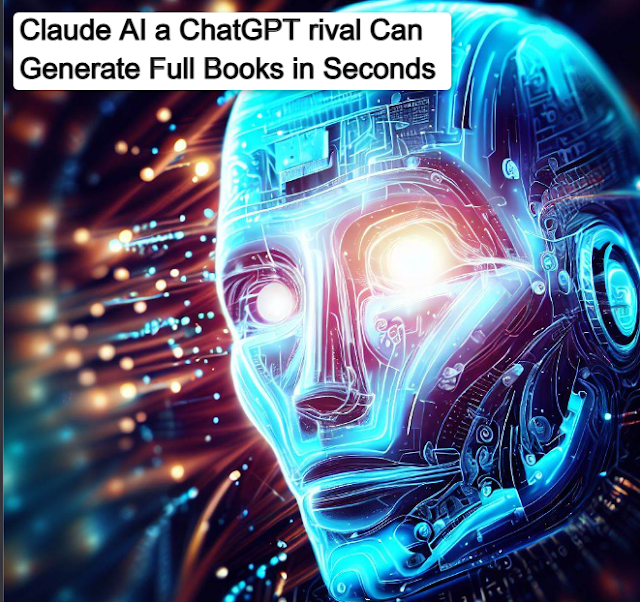Claude AI a ChatGPT rival Can Generate Full Books in Seconds

Anthropic, an AI safety startup based in San Francisco, has developed an artificial intelligence system called Claude that can generate entire books on demand. The AI takes just a few seconds to create hundreds of pages of coherent text in a variety of different styles and genres.
The AI builds on recent advances in generative machine learning models, including OpenAI's GPT-3. Anthropic's researchers trained Claude on a large dataset of books, teaching it the patterns of how books are structured and written in different styles. The system learned how to generate coherent sentences, paragraphs, and chapters in everything from science fiction novels to history books.
To generate a book, a human simply has to provide Claude with a few sentences to get started and select a style or genre. The AI then continues the text from there, creating all subsequent sentences and stitching them together into pages and chapters. The books produced by the system are not just random jumbles of words – they feature characters, dialogue, plot, and logical prose. However, the quality can be uneven and repetitive at times.
Anthropic sees potential applications for Claude in entertainment, education, and business. The AI could be used to quickly generate first drafts of books that human authors could then edit and improve. It could also generate interactive storytelling experiences and personalized educational books tailored to individual learners' needs.
However, some experts worry that as AI systems become more capable of generating hyper-realistic fake content, they could be misused for malicious purposes like fraud, scams, and disinformation. Anthropic designed Claude to be helpful, harmless, and honest in order prevent potential issues, but as these generative technologies proliferate, they raise important questions about AI safety and ethics. The era of AI being able to instantly generate creative works has exciting possibilities, but also brings new risks and challenges that researchers will have to grapple with.